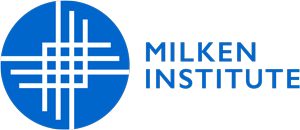Recognizing that support for new talent in the sarcoidosis research and clinical field is key to accelerating breakthroughs, the Ann Theodore Foundation is launching a new initiative, called the Ann Theodore Foundation Learning Opportunities in Medicine and Sarcoidosis (ATF-LOMAS) initiative, to provide funding support for early career researchers interested in sarcoidosis research. The Milken Institute Science Philanthropy Accelerator for Research and Collaboration (SPARC) will administer the initiative.
The ATF-LOMAS is now accepting applications for awards of up to $100,000 per year for two-year research projects led by early career investigators who seek to increase the foundational understanding of sarcoidosis through projects focused on the biology, epidemiology, and clinical care of the disease. Successful applicants will be paired with a mentor to provide guidance throughout the initiative.
For this program, “early career” investigators are defined as being within the first five years of an independent faculty appointment who have not yet obtained an R01, P01, or P50 grant from the National Institutes of Health (NIH) or a similar award (e.g., typically multiyear grants that provide substantial support for independent research programs, >$250,000 per year in direct costs).
Ann Theodore Foundation Learning Opportunities in Medicine and Sarcoidosis
Recognizing that support for new talent in the sarcoidosis research and clinical field is key to accelerating breakthroughs, the Ann Theodore Foundation is launching a new initiative, called the Ann Theodore Foundation Learning Opportunities in Medicine and Sarcoidosis (ATF-LOMAS) initiative, to provide funding support for early career researchers interested in sarcoidosis research. The Milken Institute Science Philanthropy Accelerator for Research and Collaboration (SPARC) will administer the initiative.
The ATF-LOMAS is now accepting applications for awards of up to $100,000 per year for two-year research projects led by early career investigators who seek to increase the foundational understanding of sarcoidosis through projects focused on the biology, epidemiology, and clinical care of the disease. Successful applicants will be paired with a mentor to provide guidance throughout the initiative.
For this program, “early career” investigators are defined as being within the first five years of an independent faculty appointment who have not yet obtained an R01, P01, or P50 grant from the National Institutes of Health (NIH) or a similar award (e.g., typically multiyear grants that provide substantial support for independent research programs, >$250,000 per year in direct costs).
